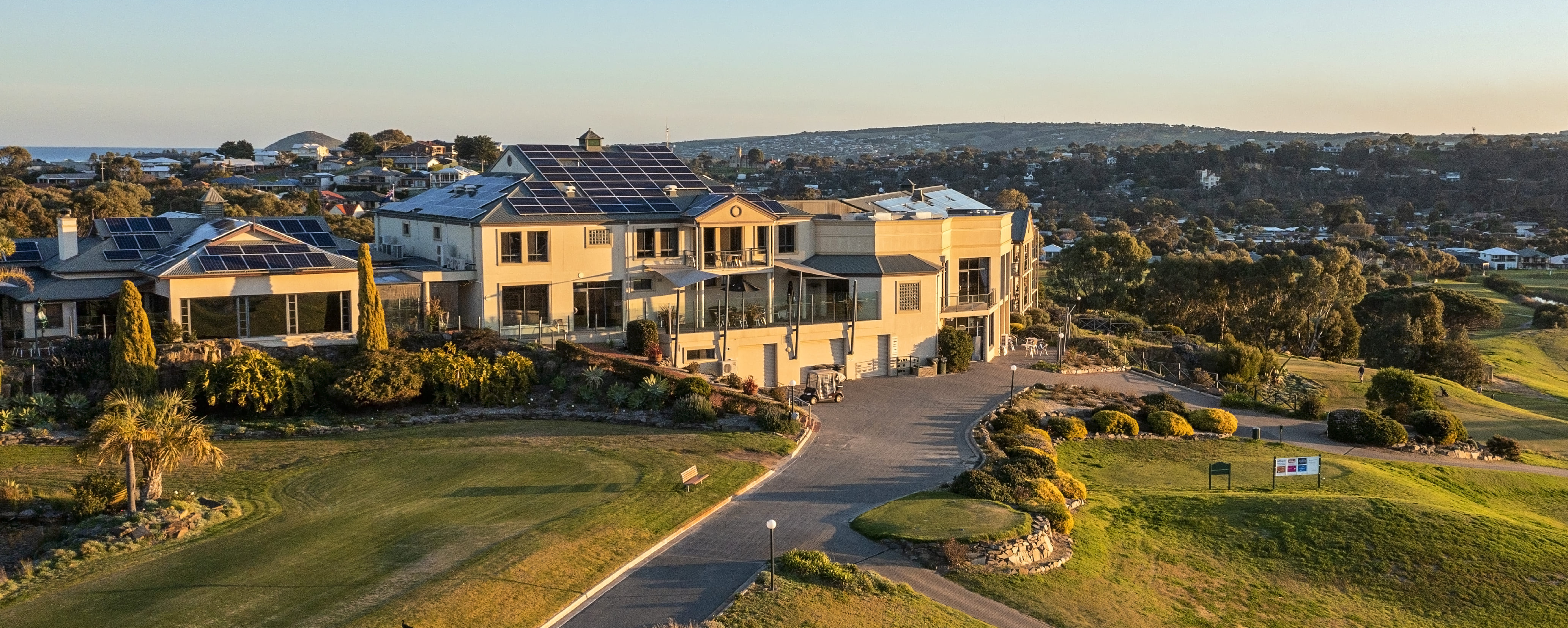
Reducing food waste at a regional resort through smart planning, sustainable practices, and staff engagement.
McCracken Resort is a premier accommodation provider located in the Fleurieu Region, offering a bistro bar with a seated capacity of up to 160, open to guests, members, and the public. The resort also features multiple function spaces catering to a range of events.
In 2024–25, as part of its ongoing commitment to environmental and social responsibility, McCracken Resort participated in Business Victor Harbor’s Fleurieu Region Circular Business Program to assess and improve its food waste practices.
Objectives
Through participating in the Fleurieu Region Circular Business Program, McCracken Resort set out to:
- align food waste management with its environmental, social, and governance (ESG) strategy
- identify and implement cost-saving measures in food preparation and waste
- improve operational efficiency and staff awareness around sustainability
- reduce overall environmental impact from food waste.
The importance of sustainability
Reducing food waste is a key priority for McCracken Resort as it directly supports the organisation’s broader ESG goals. With rising costs associated with food procurement and disposal, and the environmental implications of excess waste, the resort recognised a need for change. Staff were motivated by both financial efficiency and environmental responsibility, seeking practical solutions that could benefit the business, guests, and the surrounding region.
Program outcomes
A detailed food waste audit revealed that McCracken Resort's waste levels were relatively moderate, with food waste averaging 164g per meal, slightly below the industry average of 168g per meal. The audit estimated annual food waste at approximately 6.5 to 6.9 tonnes, translating to a potential cost of $16,000 per year. This figure excludes additional expenses such as operational costs, staff time, and waste disposal fees.
Key areas of food waste included:
- plate waste, estimated at 2,900 kg/year ($10,700)
- buffet waste, 500 kg/year ($1,500)
- prep waste, 2,200 kg/year ($2,600).
Opportunities for improvement identified included:
- optimising buffet breakfast operations, particularly on lower occupancy days
- adjustments in portion control, reducing both preparation waste and plate waste.
Implemented actions include:
- serving à la carte breakfasts during low occupancy periods, substantially cutting down on buffet-related waste
- refining portion sizes based on audit insights, leading to noticeable reductions in leftovers
- initiating conversations with the ESG team to bring in a bio-digester from another property for on-site organic waste processing
- exploring the development of an aquaponics system to grow micro-herbs and sustainably farm fish on-site.
Additional benefits of participating in the program have included:
- enhanced team education and awareness of food waste and its impacts
- cost savings from reduced food waste and more efficient kitchen operations
- positive shifts in culture, with sustainability principles extending beyond work into staff’s personal lives.
What’s next?
Building on the momentum of the program, McCracken Resort is actively exploring:
- installing a bio-digester to process food waste sustainably and reduce landfill contributions
- implementing the aquaponics project to further close the loop in food production and sourcing
- continuing to educate staff and integrate food waste awareness into training and onboarding processes
- sharing success stories and best practices with sister properties and industry peers.
Conclusion
Participating in the Fleurieu Region Circular Business Program has been a rewarding and educational experience for the McCracken Resort team. Beyond the measurable reductions in food waste and cost, the program has fostered a culture of environmental awareness and accountability. By taking practical, data-driven steps, McCracken Resort is not only improving its own operations but also contributing to a more sustainable future for the region.
About the Fleurieu Region Circular Business Program
Business Victor Harbor’s Fleurieu Region Circular Business Program was funded by Green Industries SA and delivered by Rawtec.
In its second year running, the program supported 3 businesses local to the region to reduce food waste and build resilient, profitable, and circular food systems.
Over a 12-month period, participating businesses attended a series of workshops where they learnt about the principles of the circular economy, and created a food waste action plan on how they could apply these to their business to reduce waste, save costs and improve environmental and social outcomes.




